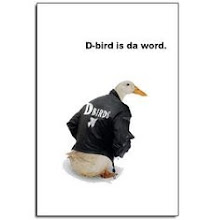Is YouTube the next Google? Is YouTube your search engine of choice? Maybe not yet, but for some, including kids, it is. A thought-provoking article,
At first, funny videos. Now, a reference tool in the New York Times, written by Miguel Helft, discusses this phenomenon.
The explosion of all types of video content on YouTube and other sites is quickly transforming online video from a medium strictly for entertainment and news into one that is also a reference tool. As a result, video search, on YouTube and across other sites, is rapidly morphing into a new entry point into the Web, one that could rival mainstream search for many types of queries.
And further on:
At YouTube, Hunter Walk, a director of product management, said the move toward video might not necessarily lead to a decline in the consumption of text or other media. Video, text and other formats, he said, will complement one another in interesting ways.
Mr. Walk said a good example is provided by an ad for Hillary Rodham Clinton during the Democratic presidential primaries — the one in which a voice asks “Who do you want answering the phone?” at the White House at 3 a.m. during a crisis. A search for “Hillary Clinton 3 a.m.” on Google would bring up news stories about the ad and the controversy surrounding it. On YouTube, the same search brought up the original commercial, as well a response by the Barack Obama campaign, pundits’ commentaries and an assortment of spoofs, giving users a much different understanding of how the story unfolded, Mr. Walk said.
At present, the school system in which I work has blocked all access to YouTube, for students and staff, due to concerns including those related to child protection.
I wonder about what decisions will be made in the future. Dictionaries, for instance, always had words like f**k and s**t in them; kids could find them, but had to hunt. Few school libraries would not have pictures of naked people, whether in a National Geographic or a health book. Now, with the internet making searching many sources faster and simpler, stuff kids had to work to find is more immediately located. The openness of the internet makes it a challenge for educational systems, deciding what to allow, what to block, and why; and even if they can.
And then there are always the sites like YouTube. Like the dictionary, a collection, a cornucopia, of material judged worthy and less worthy. And at what point (assuming that it's not possible to allow some access only, as I've been told is the case - to allow some is almost inevitably to allow all) does the educational value outweigh the educational and social (eg. child protection) negatives?
Web 2.0 is about interaction, user-driven, user-uploaded content. But in a free, democratic society, the freedom is there to upload the good, the bad, the indifferent. There are great YouTube videos and vilely stupid ones. Great blogs and vilely stupid ones. Fabulous Flickr images and ridiculous/troubling/antisocial ones. The collection that is our human society, our mess and melange of thoughts and ideas, available in unimaginable volume, as never before.
I don't know the answers. As a teacher, as a teacher librarian, I think about these questions, though. What access should we offer at school? It's probably always going to be less than home internet access (and that's assuming all kids do have home internet access), but where the line is drawn? That's a problem for Solomon.
And creeping up on the horizon are cheaper and cheaper netbook computers, wireless broadband, mobile phones (cell phones/cellphones) with internet access), so it's getting easier and easier for kids to step past the protective systems their school may put in place, and jump onto the internet. To use YouTube as a search engine, for example.
Solomon?
.























